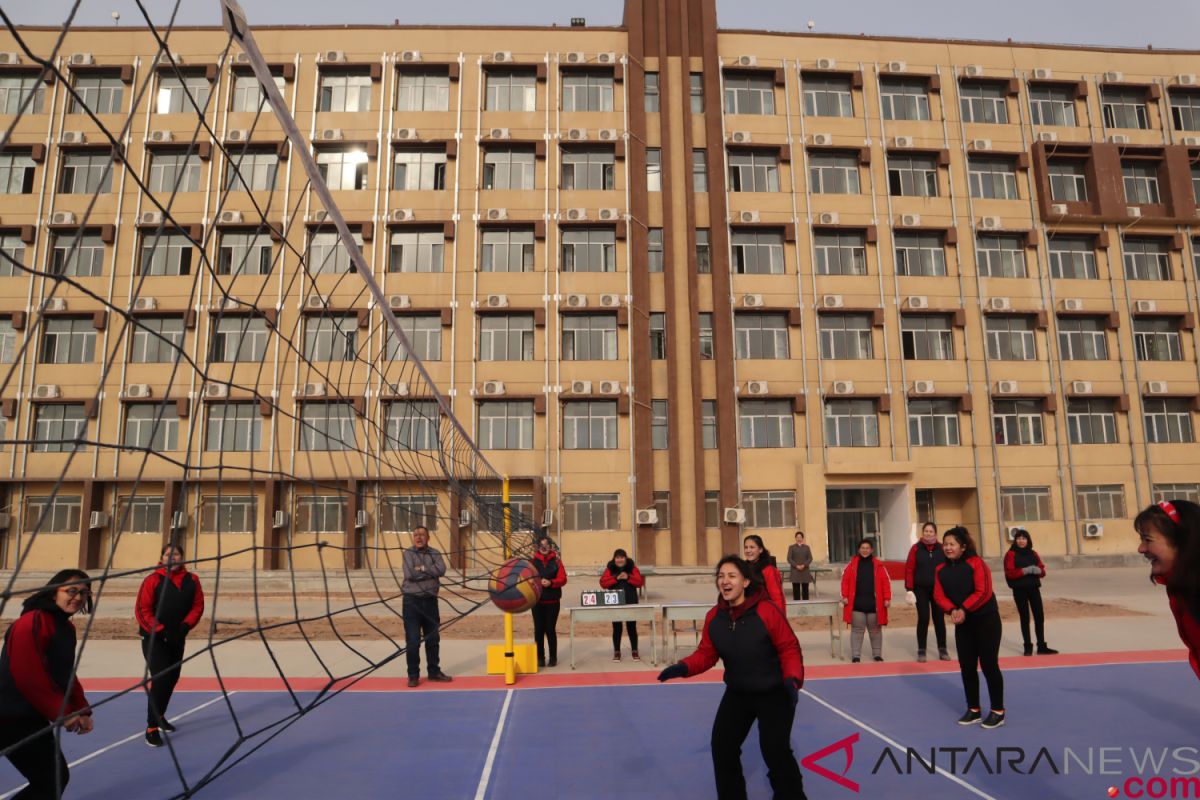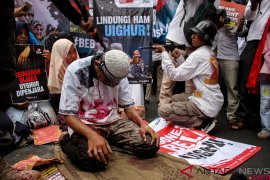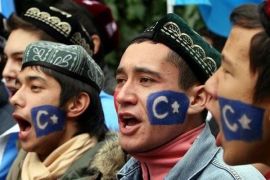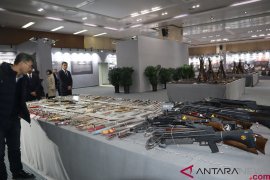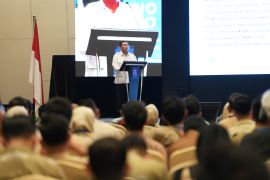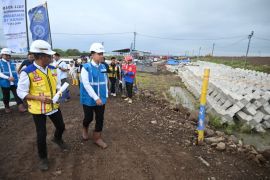A group of people wearing black uniforms and with red motifs on their arms was chasing a ball. Despite the temperature being 5 degree Celsius, they did not feel cold.
Their cheerfulness unfolded the chilly morning on the outskirts of the city in mainland China on the borders of Kyrgyzstan, Tajikistan, Afghanistan, and Pakistan. Even as the international community was talking about them, their faces did not emit the bitterness of being held captives or prisoners. These people were trying to improve their standards of living by utilizing the facilities.
It is not easy to know what is in their minds, but the morning activities are far from the concern of the international community. There are no traces of cases of extremism, radicalism, and terrorism that are closely related to the image of their group for the past 23 years.
Meanwhile, inside "the camp," their friends mimicked the words of the teacher who spelled Chinese characters. Those between the age of 20 and 30 were not supposed to sit in the classroom to recite words. But that is the reality when majority of those in the "camp" cannot speak their own national language.
This became the main reason for the Chinese government to build a learning center for Uighurs to learn Chinese languages. The centers also promoted their skills and strengthened their nationalism by understanding the country`s constitution comprehensively.
The Chinese government faced criticism from the United Nations, human rights activists, and other Muslim groups in various countries, including Indonesia, because of the pattern of education and training targeted a certain group, namely the Uighurs, Muslim ethnic minority in Xinjiang, autonomous region of China.
Camp or Vocational Training Centers?
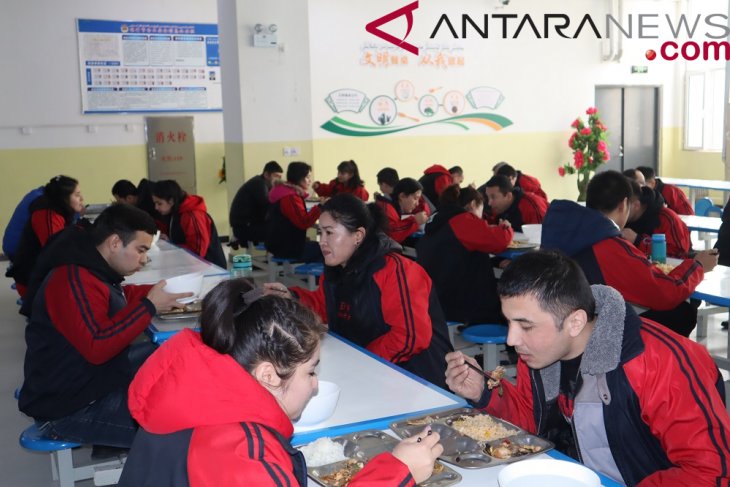
A journalist of Antara and four other foreign news agencies with representatives in Beijing received exclusive opportunities to visit the Uighur camps. The Chinese government has termed the camp as "zhiye jineng jiaoyu peixun zhongxin" or the vocational training center.
As compared to state-owned vocational training centers (BLK) in various regions of Indonesia, facilities in vocational centers in Kashgar City are more complete and adequate.
The center not only has facilities for training students but also other supporting facilities too. Based on the quality of facilities and infrastructures, the center has been built with a large amount of money.
However, when viewed from the outside, the center does not indicate a place for work training. The facility is similar to a camp rather than a vocational training center, because it is installed with fences, barbed wire, and closed-circuit television (CCTV) cameras. The facility is also located far from settlements.
Several figures and international institutions earlier called the facility as a "concentration camp" because the Uighurs did not have the rights to practice their traditions and beliefs inside it.
The "camp" was built on 16 hectares of land by mid-2017 with a capacity of three thousand people. The head of the camp, Mijiti Meimeiti, stated that the around two thousand trainees live in border areas.
The majority of them are exposed to radicalism and extremism. As a result, those who are exposed to radicalism should be sent to the "camp."
However, jailhouses are appropriate places for terrorists, not "camps." Therefore, Meimeiti strongly denied accusation of the international human rights watchdog.
The Human Rights Watch earlier blamed the Chinese government for a "systematic campaign of human rights violations" against Uighur Muslims in northwestern Xinjiang, an autonomous region in the country. According to a 117-page report published over the weekend, the Chinese government conducted "mass arbitrary detention" of Uighur Turks in the region.
"In the village, I once opposed extremism. The neighbors reminded me to avoid the extremism. Then, they asked me to go to the vocational training center. Finally, I went to the vocational center," Mirkamiljan remarked in his local language through a Mandarin translator, on Friday (Jan 04), strengthening the statement of the principal.
The 20-year-old man stated that the training center had improved his skills in the electronic field. Since he has not been graduated from Mandarin class yet, he was not allowed to leave the "camp."
In fact, he wanted to immediately get a job to help his parents who are still living below the poverty line. He remarked that the Chinese government has fulfilled the needs of trainees in the "camp."
"I did not pay anything. We can even learn. We are happy here," a trainee stated at the tailoring course.
The food is good and halal. We eat rice, vegetables, and chopped fried fish. According to a trainee, who wants to keep his name anonymous, the menu changes every day.
"But it is always chicken and fish in every menu. Sometimes, it is also mutton," he revealed. As people living in the desert with low temperature, their main food must include mutton, which can warm their bodies.
Their beds are separated from each other, both in parallel and stacking beds. Men and women are placed in separate dormitories, although they are in the same classroom.
Their privacy is protected by barriers made of aluminum plates, and there are air installations that can be set cold and hot.
"The training center has complete facilities. We can get the knowledge and skills required. We are allowed to go home during Saturday," a female trainee (30) said through a translator.
(To be continued)
Reporter: Irfan Ilmie, Azis Kurmala, Azi
Editor: Gusti Nur Cahya Aryani
Copyright © ANTARA 2019
